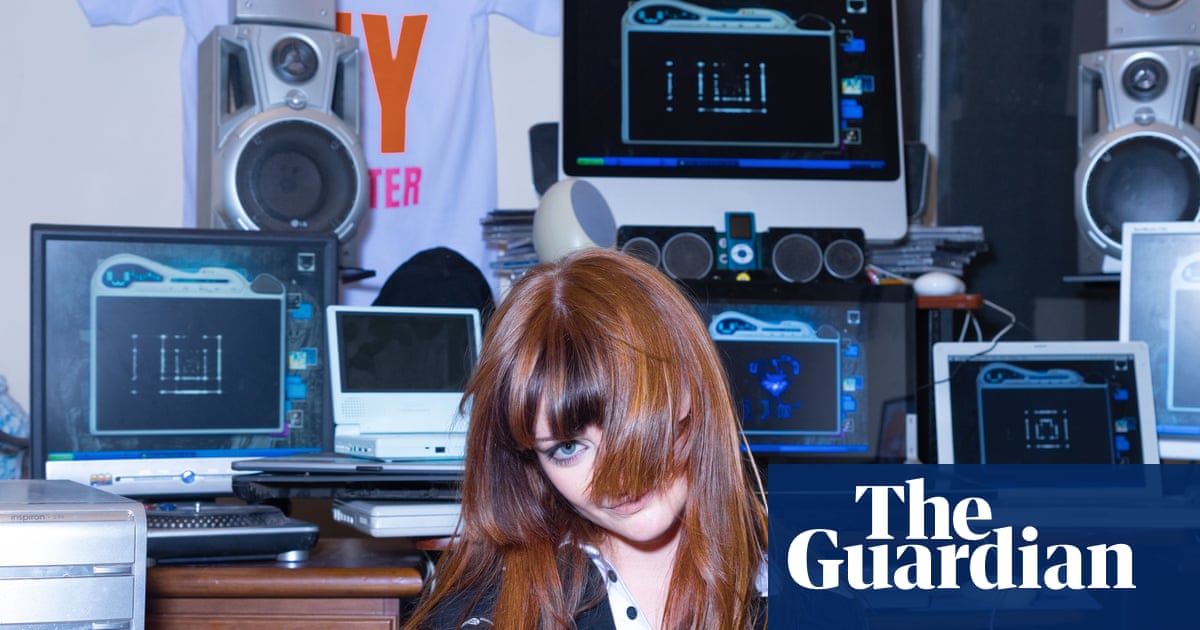Ninajirachi is having a dream run with her debut album I Love My Computer – and between leading this year’s Aria nominations with eight nods and the rapturous crowds at sold-out shows, she knows it.
“I want to live up this one before I move on, because it might be hard to come back to this headspace and time,” says Nina Wilson. “I don’t want to rush into the future.”
Released independently via NLV Records this August to international acclaim (including the Guardian’s own five-star review), I Love My Computer’s high-octane, innovative take on 2010s EDM has helped position the 26-year-old as Australia’s next big dance export.
Not that she’s an overnight success. Since gaining prominence as a Triple J Unearthed High finalist in 2016 and 2017, Wilson has steadily established an audience through a series of playful, floor-filling releases, as well as sets at EDM festivals across the US.
But things have ramped up of late. In the past three months, Wilson has toured relentlessly across the US and Australia, locked in slots at both Coachella and Primavera, and started raking in trophies ahead of the Arias this Wednesday, where she is up for album of the year, breakthrough artist, best solo artist and more.
I Love My Computer has already won both Triple J’s album of the year, alongside the prestigious Australian Music prize (AMP), a $50,000 award inspired by the UK’s Mercury prize given “purely on artistic merit”.
Wilson says the AMP – in addition to alleviating her budget, which is “in the red” after the two-month US tour – validated one of the major driving forces behind the album.
‘Because I was in this semi-isolated place with no friends who liked the same music as me, I felt like it was happening just to me’ … Ninajirachi. Photograph: Passive Kneeling
“I really wanted to make an Australian album,” she says. “I use my accent when I record, and there are a few lyrics that couldn’t be talked about by anyone else in the same way.”
Wilson’s quick to place her music within a lineage of Australian electronica, having grown up on Flume’s glitches, Pnau’s irreverent house and the future bass perfected by Wave Racer, who mixed I Love My Computer.
They’re all part of Ninajirachi’s wonderfully bizarre grab-bag of sounds, an idiosyncratic mix of crystalline synths, sirens, mechanical whirls, eurotrance, obnoxious EDM drops and more intricate sequences that Wilson jokingly calls “girl EDM”.
Pooling together both banal and monumental memories, I Love My Computer features lyrical references to Supré shorts (iPod Touch), failed music assignments (Sing Good) and even an Australian computer that was the first in the world to play music (CSIRAC) – a collage of Wilson’s adolescence on the New South Wales Central Coast.
But it’s the hours of “me and my computer hanging out till late” (to quote iPod Touch) that shaped I Love My Computer, right from the moment Wilson accidentally stumbled across a Porter Robinson track online at 12 years old and was immediately hooked to EDM’s sugary drops.
Sometimes Wilson wonders whether she would have still spent hours scrolling, learning everything she could about this distant subculture, if she lived somewhere more vibrant.
skip past newsletter promotion
Sign up to Saved for Later
Catch up on the fun stuff with Guardian Australia’s culture and lifestyle rundown of pop culture, trends and tips
Privacy Notice: Newsletters may contain information about charities, online ads, and content funded by outside parties. If you do not have an account, we will create a guest account for you on theguardian.com to send you this newsletter. You can complete full registration at any time. For more information about how we use your data see our Privacy Policy. We use Google reCaptcha to protect our website and the Google Privacy Policy and Terms of Service apply.
after newsletter promotion
“When I was discovering that [music], it really felt like an original experience,” says Wilson. “Because I was in this semi-isolated place with no friends who liked the same music as me, I felt like it was happening just to me.”
Not everyone can relate to the specifics of becoming a preteen electronic music producer because of YouTube. But I Love My Computer’s propulsive tracks tap into a more universal sense of childlike excitement, of waiting and wanting to connect to a world bigger than your surroundings – even one that’s dangerous, as on Infohazard, an eerie eurotrance record where Wilson recalls seeing a decapitated man online.
“Growing up [in Australia] was a big inspiration for my music, but it’s almost because of the absence of what was there, and having to fill it in with internet surfing,” she says. “Maybe that’s why people from different places and cultures have liked the songs? Because we all grew up on the internet together, whether we knew it or not.”
‘There was a time when I never thought I’d even have a picture of myself on my artwork’: Ninajirachi on her album cover for I Love My Computer
For Wilson, I Love My Computer marks a new artistic frontier. “There was a time when I never thought I’d even have a picture of myself on my artwork before,” says Wilson, who appears on her album cover for the first time, albeit with her hoodie sleeve covering half her face, while she’s swallowed by a tangle of digital detritus in her childhood bedroom.
“[Before,] I didn’t have my voice on my music. It felt very separate from me, the person. I just couldn’t have even imagined getting to this point, being this comfortable being perceived.”
While Wilson continues to adjust to bigger stages and more eyes, she’s hoping to keep her own focus on what’s worked so far.
“I’ve released music that I like for so long, even if not many people paid attention to it. I just hope I can keep doing that.”

